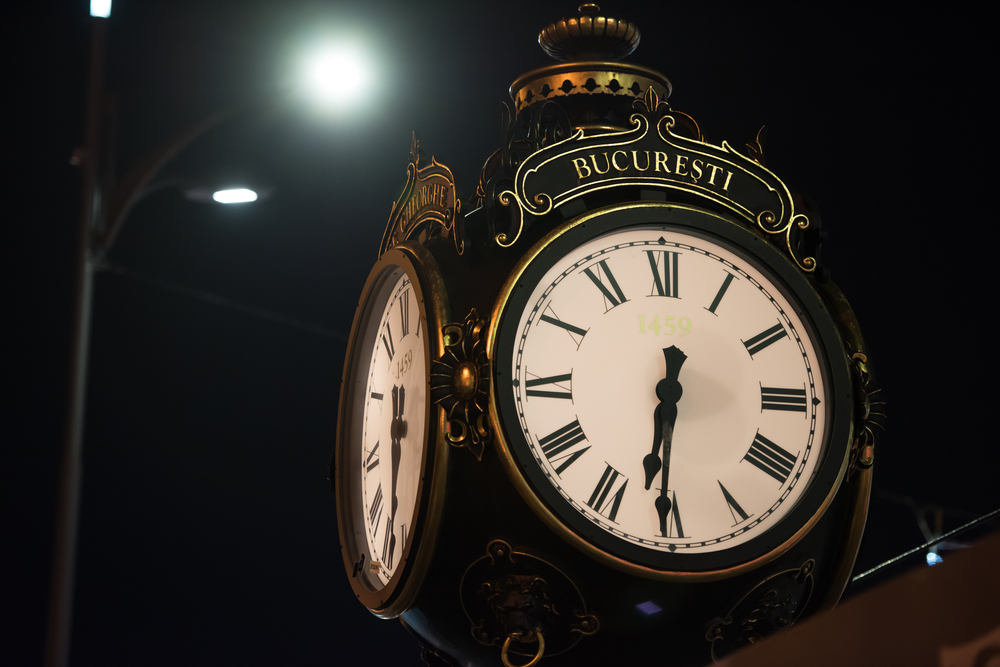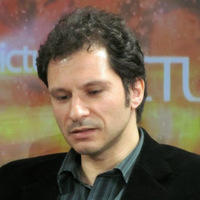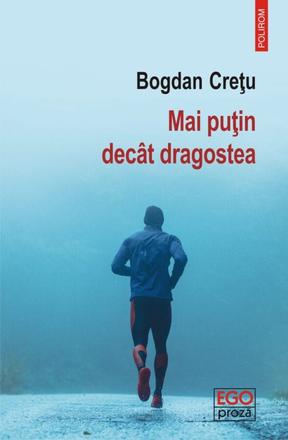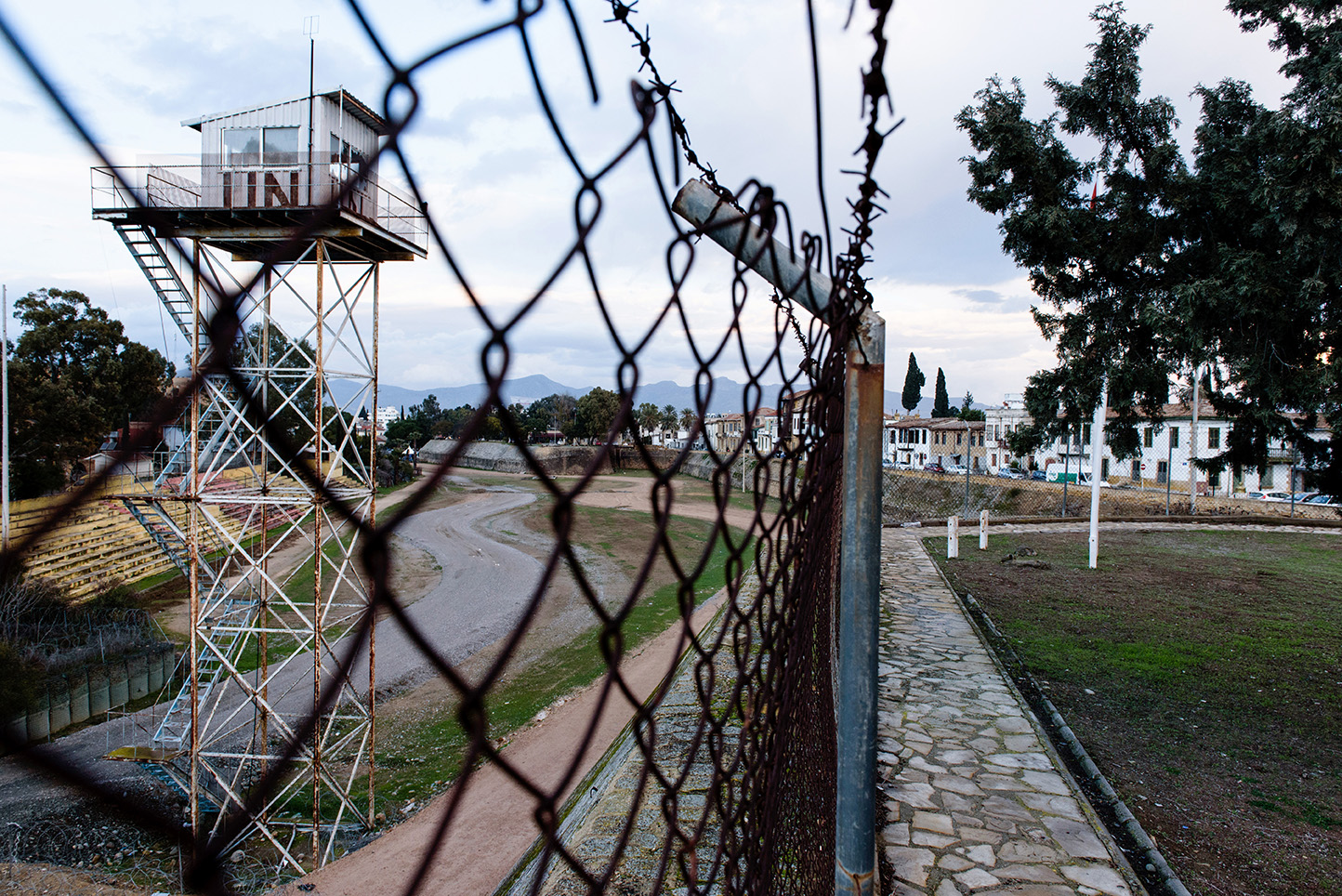Romania |
Bogdan Crețu, loving among the ruins of Romanian communism
Bogdan Crețu’s novel "Less Than Love" (Mai puțin decât dragostea), published in 2023, has been shortlisted for this year’s European Prize for Literature (EUP). A review of the novel, still unpublished in Italy

Bogdan-Cre-u-amare-tra-le-rovine-del-comunismo-romeno
Old-fashioned clock in Bucharest, Romania - © Creative Lab/Shutterstock
"Less Than Love" is, beyond all recognition, a necessary book because it addresses the repressed, what a society tends to forget in order to survive. It is a precious opportunity to learn about a piece of history. It is a work that questions, moves, disturbs, and — above all — provokes reflection.
It is part of that "postmemory" movement that has seen many Eastern European authors in recent years — from Herta Müller to Katja Petrowskaja — attempt to tell the stories that have remained in the shadows of the twentieth century.
Historical context: Romania between dictatorship and post-communism
Romania experienced one of the harshest dictatorships in Eastern Europe, culminating with the regime of Nicolae Ceaușescu (1965-1989). Characterized by oppressive social control, political persecution, and the infamous Securitate secret police, the communist period left a profound mark on the country’s collective memory. The prison system, in particular, was the scene of torture, brainwashing, and systematic violence, especially during the 1950s.
The fall of the regime in December 1989 formally marked the end of the dictatorship, but the transition to democracy was slow, painful, and often ambiguous. Many executioners remained untried, and transitional justice remained partial.
This unresolved legacy is at the heart of Crețu’s novel, which poses the reader a crucial question: how can we live with the past if we don’t truly confront it?
The plot: love, memory, guilt
Vlad, the narrator, meets Maria, and over the course of two days they begin to tell each other the story of their lives. What initially seems like a burgeoning love affair becomes an excuse for a deep dive into the past.
Vlad recounts his love story with Sara, from high school onward, as well as the fate of his parents. We learn that Vlad’s father was a political prisoner who was arrested as a teenager in 1956 after singing "Deșteaptă-te, române!" (the national anthem, banned at the time by the regime).
It took very little to be imprisoned and subjected to beatings and torture during the darkest period of communist oppression. The author tries to empathize with the jailers, reflecting the human complexity of the situations: the torment, the satisfaction, or even the inner burden that, ironically, even a torturer can feel.
"How the hell can you trample on a child?" it is written in the book. “What do you get out of it? What satisfaction can you get? What awakens inside you? All you had to do was spit on him and he’d collapse. Or raise your fist and he’d pee himself. It was clear that no one had ever beaten him at home. Maybe he didn’t have a father. A sissy. But orders were orders, directives had to be followed. They still had to hand in at least twenty cases by the end of the month, and that went smoothly, without too many worries. Even they got tired from yelling. And in this case, there wasn’t even much work to do: a well-placed slap, a punch in the stomach, a kick in the shin and that was it. With these little ones, you get where you want to go right away. It was fun, they even relaxed a little. Because otherwise it’s not a job for everyone: punching, slapping, kicking, beatings with a truncheon day and night—do you think it’s easy? Always covered in blood, like a butcher. They returned home, to their wives, exhausted, destroyed by how much they had cursed and beaten. Let whoever could screw them, they just wanted to sleep. And what were they supposed to say when their wives asked, ‘Are you tired? How was it today?’ Oh, very well, we beat up ten enemies of the people, four young and six old.”
The stories of time spent in prison don’t just build character profiles, but also convey the reality of a not-so-distant past: "There is a prisoner’s reality and a jailer’s reality. For many, the former obliterates the latter. In short, the torturer savagely beats or kills the prisoner at his whim. But we must take both into account if we want to understand the reality of prison, of the prison camp."
And to understand this reality, the intertwining of the characters’ destinies becomes the key to the book. Vlad’s father’s communist jailer and torturer turns out to have been Sara’s father.
A notorious torturer, named Iancu Iacoban, treats the young prisoner with more tenderness. Not so much by personal choice, but because, apparently, he had been a friend of his current wife — she too briefly imprisoned and then released, pressured to sign statements against her beliefs.
Intergenerational memory insinuates itself like a tree with ever-growing branches. Who knows how many of our relatives, during the communist era, were both victims and executioners.
Characters like the torturer Iancu Iacoban were never punished. The old Romanian Securitate silently infiltrated the new system. Although in a few rare cases, justice managed to bring some of the jailers to trial, trying ninety-year-olds made little sense.
The punishment for Iancu Iacoban comes through his daughter Sara, who falls in love with his victim’s son, runs away with him, becomes pregnant, and, after being discovered, accepts her father’s promise of help in building a family — only to flee again, from the country and from her own love story.
The protagonists are not responsible for their fathers’ crimes, but they inherit their consequences. And a love story cannot be built on the ruins of a burdensome past. The separation of the young lovers, who reunite after decades, becomes a symbolic sacrifice of a battle lost, but also won.
Beyond the story of prison, torture, and love, there is also that of Maria, the protagonist’s interlocutor. Hers is no longer a narrative of physical violence, but of pure poverty and psychological pressure.
Unlike Sara, who lived in prosperity thanks to her father’s shady job, Maria spends a sordid childhood and adolescence, with two parents who pretend to be happy on the weekends — until even that is no longer possible. During the rest of the week, they search through garbage and get drunk on disinfectant instead of alcohol. This is how Maria’s father ends his own life.
"What love, huh? When you’re poor and have nothing to put on the table (…) who should teach us what love is? Hate. And fear. Fear and hate. We grew up with these."
Evil and ambiguous characters continue to forge their own path beyond any regime. The influence of the #MeToo movement in the final section of the novel on Maria’s university story introduces a contemporary and global element, demonstrating how the dynamics of abuse and power are not confined to the past.
"Evil," the author explains in a meeting with his readers, "is a much more visible theme than good. Good quickly becomes banal; we forget it more easily. We can learn a lot from the evil of the collective past, an evil that is not so distant in time. And if this evil is not yet distant enough in the past, then let it at least be distant enough in the future. Love always tries to survive, but by itself it is not enough to heal wounds unless we first explore the truth."
L’autore
Bogdan Crețu (b. 1978) is a professor at the Faculty of Letters of the Alexandru Ioan Cuza University of Iași. Between 2013 and 2022, he was director of the A. Philippide Institute of Romanian Philology of the Romanian Academy, Iași branch. He is the editor-in-chief of Timpul magazine and a member of PEN România.
He has published eight volumes of literary criticism, the most important of which is The Unicorn at the Gates of the Orient. The Bestiary of Dimitrie Cantemir (second edition, Editura Cartier, 2021). He has contributed numerous studies to academic volumes at home and abroad, and has edited and written prefaces for several anthologies.
He writes a literary criticism column for the magazine Observator cultural. He also published the novels The Unicorn’s Horn (2021) and Nichita. The Poet as the Soldier (2022) for the Polirom publishing house.
This publication has been produced within the Collaborative and Investigative Journalism Initiative (CIJI ), a project co-funded by the European Commission. The contents of this publication are the sole responsibility of Osservatorio Balcani Caucaso Transeuropa and do not reflect the views of the European Union. Go to the project page
Tag: Literature











